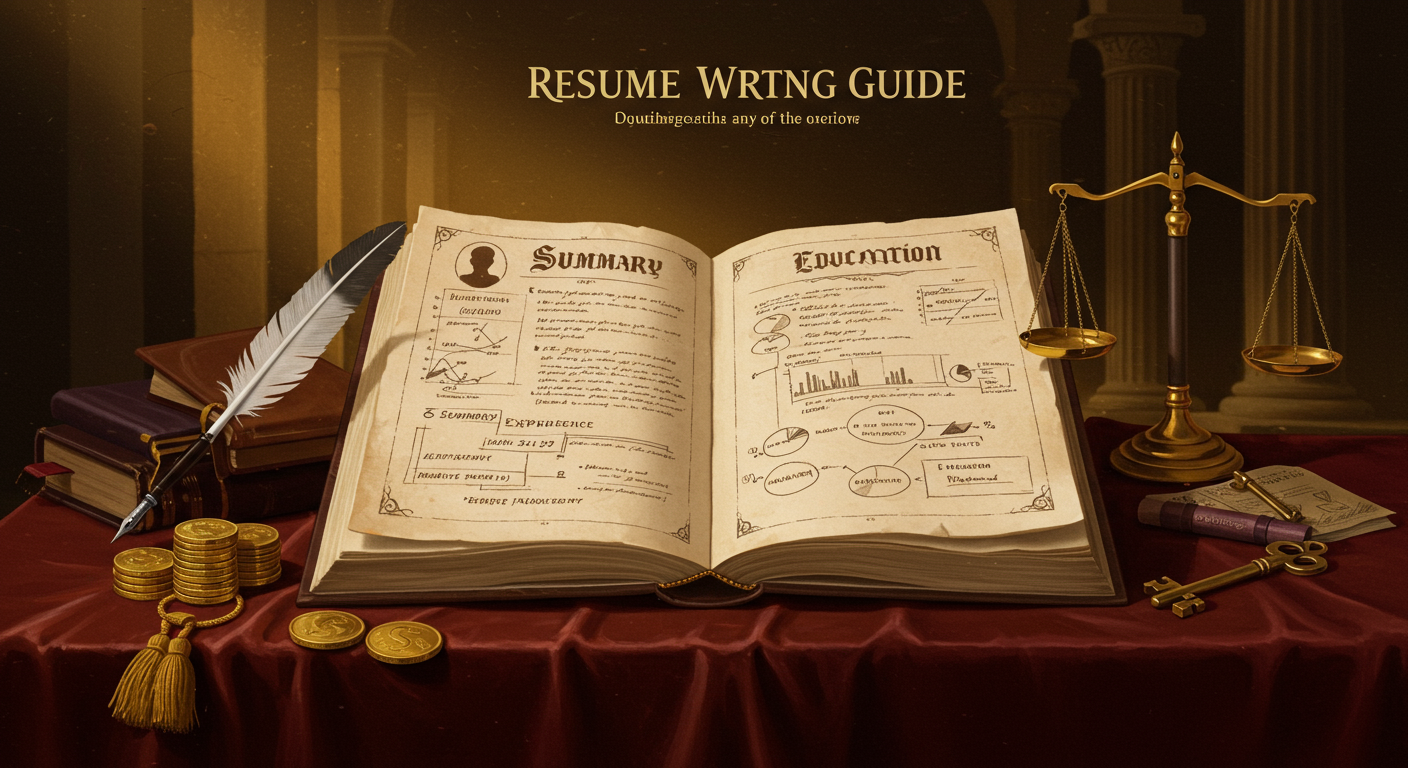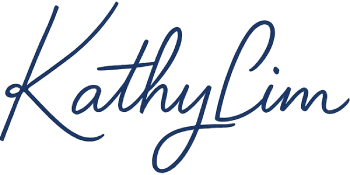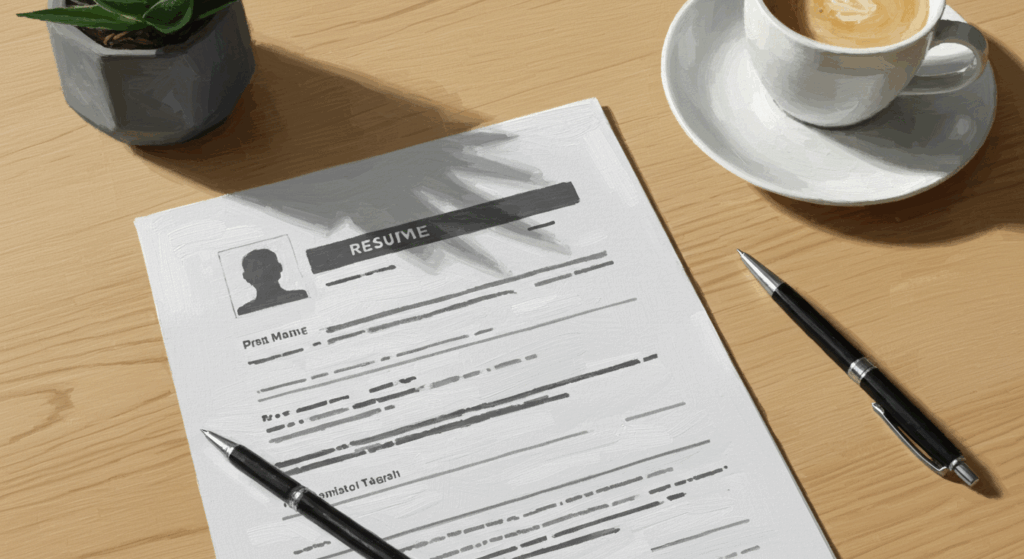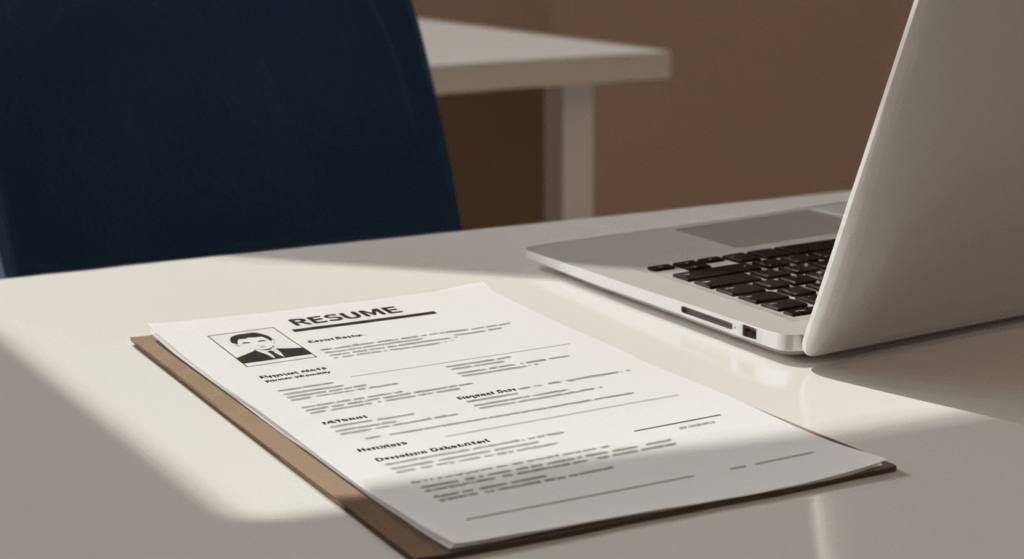Look, we’ve all been there. You’re staring at a blank document, cursor blinking mockingly, wondering how on earth you’re supposed to fill out a resume when your work experience section is… well, basically nonexistent. To be honest, it feels like one of those impossible catch-22 situations – you need experience to get a job, but you need a job to get experience. Ugh, right?
But here’s the thing I learned the hard way: having “no experience” doesn’t actually mean you have nothing to offer. It just means you need to get creative with how you present what you DO have. And trust me, you have more than you think.
The Mindset Shift That Changes Everything
Before we dive into the nitty-gritty, can we talk about something for a second? The biggest hurdle isn’t actually writing the resume – it’s getting past that voice in your head that says you’re not qualified for anything. You know the one I’m talking about.
Here’s what I wish someone had told me when I was in your shoes: employers aren’t just looking for someone who’s done the exact job before. They’re looking for someone who can learn, who shows initiative, and who brings fresh energy to their team. Sometims, that “inexperienced” person is exactly what they need.
What Actually Counts as Experience (Spoiler: More Than You Think)
Let’s get one thing straight – just because you haven’t had a “real job” doesn’t mean you haven’t been building skills. Think about it:
Did you babysit your cousin’s kids? Congratulations, you’ve got experience in responsibility, multitasking, and crisis management (because let’s be real, kids are tiny chaos agents).
Were you the president of your college debate club? That’s leadership and public speaking right there.
Did you organize your friend’s birthday party? Event planning and project coordination, my friend.
Volunteered at the local food bank? Customer service, teamwork, and community engagement.
Even that part-time job at the campus coffee shop counts! Don’t let anyone tell you otherwise. You may have worked small jobs like babysitting or house work that taught you valuable skills.
The Magic of Transferable Skills
This is where things get interesting. Focusing on transferable skills that you’ve developed is the best way to create a resume that gains the recruiter’s attention. These are skills that apply to pretty much any job – communication, problem-solving, time management, adaptability.
Think about group projects from school. Yeah, I know, nobody likes them, but they actually taught you collaboration, deadline management, and how to work with different personality types. That’s gold on a resume!
Building Your Resume Foundation
Start with a Strong Summary or Objective
Okay, so this is where a lot of people get stuck. Do you write a summary or an objective? Here’s my take: if you’re just starting out, go with an objective. It’s basically your elevator pitch – where you want to go and what you bring to the table.
Here’s the formula that works: Be Concise: Keep it to 2-3 sentences. Focus on Skills and Goals: Emphasize your key skills and what you aim to achieve in your career.
Don’t write something generic like “Recent graduate seeking opportunities in marketing.” Boring! Instead, try something like: “Enthusiastic marketing student with experience in social media management and event coordination, seeking to leverage creative problem-solving skills and passion for digital storytelling in an entry-level marketing role.”
See the difference? You’re not apologizing for being new – you’re highlighting what makes you valuable.
The Education Section: Your Secret Weapon
When you don’t have much work experience, your education section can do some heavy lifting. And I’m not just talking about your degree (if you have one).
Include:
- Relevant coursework (especially if it relates to the job you want)
- Academic projects that showcase real skills
- Your GPA (if it’s 3.5 or higher)
- Academic honors or awards
- Study abroad experiences
- Certifications or online courses you’ve completed
That marketing class where you created a full campaign for a local business? That goes in here. The coding bootcamp you finished last summer? Absolutely include it.
Making Volunteer Work Work for You
Here’s something that blew my mind when I first learned it: Volunteer work is often just as valuable and important for your career as paid work. Seriously!
The key is presenting it like you would any other job. Many volunteer roles require transferable skills such as communication, teamwork and problem-solving, so don’t undersell what you’ve done.
Instead of writing “Helped at local animal shelter,” try “Coordinated daily care routines for 20+ animals while collaborating with veterinary staff and educating potential adopters on pet care requirements.”
Much better, right?
The Skills Section: Where You Shine
This section is going to be your best friend. Focus on your skills, education, and relevant accomplishments from internships, class projects, courses, volunteer experiences and extracurricular activities.
Break it into categories:
- Technical Skills: Software you know, programming languages, digital tools
- Soft Skills: Communication, leadership, problem-solving, adaptability
- Languages: If you speak more than one language, this is huge!
But here’s the crucial part – don’t just list skills randomly. Tailor them to the job you’re applying for. If the job posting mentions “excellent communication skills” five times, make sure that’s prominently featured in your skills section.
The Projects Section: Your Secret Advantage
This is where you can really set yourself apart. Create a section for relevant projects – school assignments, personal projects, freelance work, whatever showcases your abilities.
For each project, include:
- What it was
- What skills you used
- What the outcome was (with numbers if possible!)
“Created comprehensive social media strategy for local nonprofit, resulting in 40% increase in follower engagement over 3 months” sounds way more impressive than “did social media stuff,” doesn’t it?
Format and Presentation Tips That Actually Matter
Keep It Clean and Professional
Look, I know you might be tempted to use that creative template with the funky fonts and bright colors, but unless you’re applying for a very creative role, stick with something clean and professional. Your content should be the star, not your design choices.
Use plenty of white space, consistent formatting, and a readable font. Times New Roman might seem boring, but it’s classic for a reason.
Length Matters (But Not How You Think)
Here’s something that might surprise you: your resume doesn’t have to be a full page if you don’t have enough content to fill it naturally. A well-crafted half-page resume is infinitely better than a full page padded with fluff.
That said, don’t artificially inflate margins or use a huge font to make it look longer. Hiring managers can spot that from a mile away.
Keywords Are Your Friend
Most companies use applicant tracking systems (ATS) to screen resumes before human eyes ever see them. This means you need to speak their language – literally.
Read the job posting carefully and incorporate relevant keywords naturally throughout your resume. If they mention “project management” and you’ve managed any kind of project (even organizing your dorm’s charity drive), use that exact phrase.
Common Mistakes to Avoid
Let me save you from some rookie errors I see all the time:
Don’t apologize for being new. Never write things like “Although I lack experience…” or “Despite being a recent graduate…” Lead with your strengths, not your perceived weaknesses.
Don’t lie or exaggerate. It’s tempting to inflate your role or responsibilities, but don’t. Be honest about what you did, but present it in the best possible light.
Don’t forget to proofread. I can’t stress this enough – typos and grammatical errors are resume killers. Read it backwards, use spell check, have someone else look at it. Do whatever it takes.
Don’t use a generic resume for every application. I know it’s tempting to create one resume and blast it out to every job, but customization is key. You don’t need to rewrite the whole thing, but definitely tweak it for each position.
Making Your Application Stand Out
The Cover Letter Connection
Your resume is just part of the puzzle. A well-written cover letter can make up for a lot of missing experience by showing your personality, enthusiasm, and understanding of the role.
Use your cover letter to tell the story your resume can’t – why you’re passionate about this field, what drew you to this particular company, and how your unique perspective could benefit them.
Network Like Your Future Depends on It
Because, well, it kind of does. Most jobs aren’t even posted publicly – they’re filled through networking. Start building relationships in your field now, even before you need them.
Join professional associations, attend industry events (many are virtual now!), connect with people on LinkedIn, and don’t be afraid to reach out for informational interviews. People generally love talking about their work if you approach them respectfully.
The Reality Check You Need
Here’s some tough love: your first job probably won’t be your dream job. And that’s okay! Your goal right now isn’t to land the perfect position – it’s to get your foot in the door and start building that experience you need.
Take that entry-level position, even if it’s not exactly what you envisioned. Learn everything you can, build relationships, and use it as a stepping stone to where you actually want to be.
Every expert was once a beginner. Every CEO started somewhere. Your lack of experience today doesn’t define your potential tomorrow.
Wrapping It All Up
Writing a resume with no experience feels intimidating, but it’s absolutely doable. The secret isn’t pretending to be something you’re not – it’s recognizing and articulating the value you already bring.
You have skills, even if they weren’t developed in a traditional workplace. You have potential, drive, and fresh perspective. Sometimes, that’s exactly what employers are looking for.
Focus on what you can offer, not what you think you lack. Be authentic in how you present yourself. And remember – everyone starts somewhere. This is just your beginning.
You’ve got this. Now stop overthinking it and start writing!









